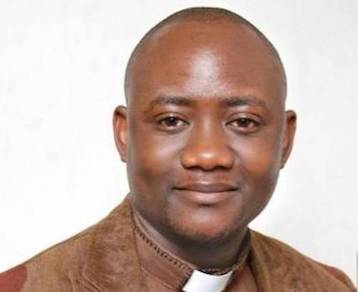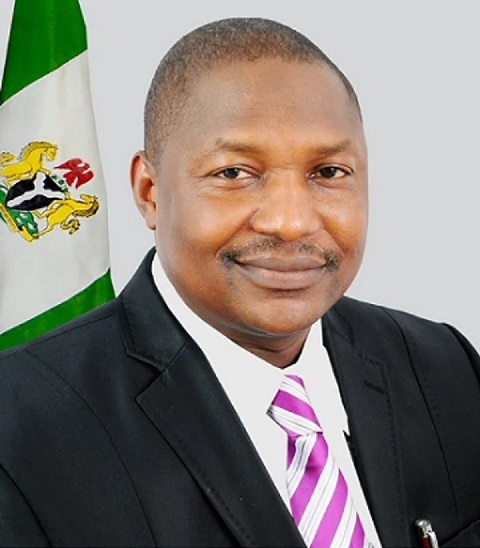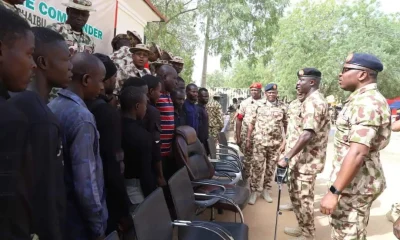COVER
The Benue Valley: Contending with Terror, Land Grabbing and Water Ways

By Justine John Dyikuk
The recent killing of Benue terror kingpin, Terwase Akwaza (Gana) by the Army on his way to Makurdi for an amnesty deal with the state government has once again put Benue on the terror spotlight. Benue is a metaphor for what happens in most nations within Sub-Saharan Africa like Nigeria where activities of terrorists and violent conflicts between herders and farmers have led to the loss of lives and property.
Environmental degradation and migration have equally led to conflicts over land and grazing fields across the country (World Watch Research, 2015). A deadly spiral of violence between indigenous farmers and semi-nomadic pastoralists of Fulani extraction has gripped the nation in the last six years fuelling a cycle of tit-for-tat violence (Unah, 2018).The Benue valley, mostly agrarian, is the melting pot for herders from the African sub-region who often migrate into the state to access food and water for their cattle. Since the main stay of Benue is proceeds from agricultural products, often, there is a faceoff between these farmers and the herders who release their animals into people’s farms.
In most cases, local communities in the state resort to courts cases or taking the law into their hands by killing livestock.
This creates a sense of indignation among the pastoralists who embark on a revenge mission to exterminate communities accused of eating their cattle. Last year, the United Nations lamented about these escalating crises.
Sadly, the long standing relationship which has existed between farmers and cattle owners is being lost. Since most Benue indigenes are Christians and the herders are predominantly Muslims, some commentators have fingered ethnicity and religion as factors escalating the conflict.
It is alleged that terrorists have targeted Christians and their places of worship killing over 37,000 people for a decade. Over 2.4 million people are now Internally Displaced Persons (IDPs) in their fatherland.
Fulanis are said to have killed over 3,500 people in Nigeria (Fadugba-Pinheiro, 2020). On 24 April 2018, two Catholic Priests, Reverend Fathers Joseph Gor and Felix Tyolaha and 17 parishioners were murdered in cold blood at St. Ignatius Catholic Church, Ukpor-Mbalom Parish, Gwer East Local Government Area of Benue State (Vanguard, 2018).
The Catholic Bishops of Nigeria (CBCN) have decried instances of killing as a result of clashes between herdsmen and host communities (CBCN, 2019).
The unabated killings resulted in a bill which was passed by the Benue State House of Assembly to proscribe open grazing. Following the implementation of a controversial state law in November 2017 which banned open grazing an d required livestock to be kept in ranches, violence intensified between farmers and pastoral herders.
The State House of Assembly had rejected the proposed 10-year National Livestock Transformation Plan that was aimed at building 94 ranches in 10 pilot states by the Federal Government as a way of ending the conflict in Benue (Unah, 2018). The policy was a plan by the government at the centre to create cattle ranches for pastoralists to breed their cattle without allowing them to roam about in search of pasture for their cattle.
However, citizens of the state and some Nigerians condemned the policy as selective stressing that it did not take into cognizance the opinion of locals. Stakeholders in the state felt that ranching would not immediately address the bad blood between both parties and thought that government should have engaged both herders and farmers by visiting their communities to hear from them (Unah, 2018). On its part, the Federal Government seemed to have frowned at the action of the Benue State Government.
In the midst of this, the Federal Government made the move to introduce the National Water Resources Bill. In defiance of the Land Act Use of 1978, which places ownership of land and water in the hand of state governments, the controversial bill attempts to transfer ownership of water bodies to the Federal Government. It also expects citizens to seek permission from the government at the centre before they can drill boreholes for private and commercial purposes.
Although the bill did not secure a concurrent passage by both Houses in the Eighth Assembly, the Ninth Assembly ensured that it passed through second reading in the House of Representatives. It has been referred to a House Committee.
Many Nigerians have criticized the motion. In particular, Vanguard reported that the Governor Samuel Ortom of Benue State on September 1, 2020 threatened that he would sue the Federal Government if the National Assembly does not rescind the passage into law of the water bill which was thrown out in 2018 by the Assembly.
Meanwhile, the herder-farmer conflict in the Benue Valley has led to unending conflicts in various communities between farm owners and cattle breeders leading to loss of lives and property.
Due to the crucial place of peace in the overall development of Benue State and Nigeria in general, it is expected that employing the rich components of conflict management such as engaging in capacity building through strategic identification of the means and ends of conflict for a sustainable peace and development in the region would help.
Sustainable peace is not divorced from justice which involves elimination of unacceptable political, economic and cultural forms of discrimination. It behoves the Federal Government, the National Assembly, Benue State Government and the House of Assembly in the State, traditional and religious leaders as well as Civil Society Organisations (CSOs) to create peace-building structures, which would proactively respond to early-warning signs of conflict.
Youth empowerment in addition to establishing peace clubs and training of local peace-builders in the affected Local Government Areas (LGAs) of Katsina-Ala, Ukum and Logo remains crucial. With these in place, the remnants of Gana would not end up like their ilk, Boko Haram insurgents. God bless the Federal Republic of Nigeria.
Fr. Dyikuk is a Lecturer of Mass Communication, University of Jos, Editor – Caritas Newspaper and Convener, Media Team Network Initiative (MTNI), Nigeria.
COVER
DAILY ASSET Appoints Torough, Editor, Names Eze, Deputy

By Laide Akinboade, Abuja
As part of efforts to reposition the newspaper for optimum corporate performance, the management of Asset Newspapers Limited, Publishers of DAILY ASSET, has announced the appointment of David Torough as the Editor of the Abuja-based national daily.
A statement by the management said the appointments were part of the company’s new strategy to further penetrate the various states in the country and raise its readership and patronage.
“DAILY ASSET is widely acceptable across the country and to maintain our leadership position, we need to increase management presence, hence the need to create new Bureau offices in some locations outside Abuja and Lagos,” the statement quoted the Publisher/ Editor-in-Chief, Dr Cletus Akwaya to have said.
In a statement yesterday, Publisher and Editor-in-Chief of the fast-growing daily, Dr. Cletus Akwaya said the appointment was part of the new strategy to properly situate the paper for better productivity.
“DAILY ASSET has a commitment with the Nigerian people. We are determined to weather the storm and give Nigerian readers a Newspaper that satisfies their yearnings and reading pleasure and we can only do that with the right set of professionals,” the statement said.
Akwaya, a former Commissioner of Information from Benue State said the difficult times being faced by Nigerians posed a great challenge to the media as the people deserved credible information with which to make choices.
“We have a bond with the people, to offer credible information at all times in the best tradition of the Nigerian Press and on this scale of objectivity, truth and fairness, we pledge to remain steadfast no matter the challenges,” Akwaya was quoted to have said.
He said the newspaper will maiantin its daily print run and circulation to all states of the federation and urged advertisers to take advantage of the deep penetration of the Daily Asset brand to send their messages.
Torough, the new Editor has had a steady rise in the Newspaper in the last five years.
A graduate of Mass communication of the Benue State University, Makurdi, Torough joined the company in 2022 as Benue State Correspondent. He was spotted for his brilliance and redeployed to Abuja the following year and promoted to Deputy News Editor. He was subswuently named Deputy Editor of the paper, a position he held until the recent appointment.
Torough has attended several journalistic workshops and trainings to properly equip himself for the task ahead.
The statement also said the Management named Eze Okechukwu as Deputy Editor.
Before his elevation as Deputy Editor, Eze has been Deputy Politics Editor and DAILY ASSET Newspaper correspondent covering the Senate, having joined the organization in 2021.
Born on March 10, 1975, Eze holds a Masters Degree in Mass Communication from the Enugu State University of Science and Technology.
Eze began his journalism career with Daily Star, Enugu and later worked with Daily Trust Newspaper, Abuja as sports reporter.
Aside from his journalistic excellence, he has a great deal of passion for sports.
COVER
Insecurity: Northern Govs, Monarchs Seek Six-month Mining Suspension

From Ngutor Dekera, Kaduna and Aliyu Askira, Kano
Northern governors and traditional rulers yesterday called for the suspension of mining activities across the region for six months, blaming illegal mining for worsening insecurity in many states.The resolution was contained in a communiqué issued after a joint meeting of the Northern States Governors’ Forum and the Northern Traditional Rulers’ Council held at the Sir Kashim Ibrahim House, Kaduna.
The meeting, chaired by the Gombe State Governor and NSGF Chairman, Muhammadu Yahaya, had in attendance the 19 northern governors and chairmen of the 19 states’ traditional councils. The Forum expressed concern over the escalating violence in parts of the North, including the killings and abductions recently recorded in Kebbi, Kwara, Kogi, Niger, Sokoto, Jigawa and Kano states, as well as renewed Boko Haram attacks in Borno and Yobe.“The Forum extends its deepest condolences and solidarity to the governments and good people of the affected states,” the communiqué said, noting that the attacks on schoolchildren and other citizens had become “unacceptable tragedies” that required urgent collective action.It commended President Bola Tinubu for what it described as the Federal Government’s “firm response” to recent abductions and insurgency threats, especially the rescue of some abducted pupils.The governors also saluted security agencies for their sacrifices on the frontlines.“We resolved to renew our support for every step taken by the President and Commander-in-Chief to take the fight to insurgents’ enclaves in order to end the criminality,” the Forum stated.A major highlight of the meeting was the North’s renewed push for the establishment of state police, with governors and traditional rulers insisting that decentralised policing had become inevitable.“The Forum reaffirms its wholehearted support and commitment to the establishment of state police,” the communiqué added, urging federal and state lawmakers from the region to “expedite action for its actualisation.”On illegal mining, the governors said criminal mining networks were fuelling violence and providing resources for armed groups.As a corrective measure, they asked Tinubu to direct the Minister of Solid Minerals to impose a six-month suspension of mining activities in order to allow for a full audit and revalidation of licences.“The Forum observed that illegal mining has become a major contributory factor to the security crises in Northern Nigeria. “We strongly recommend a suspension of mining exploration for six months to allow proper audit and to arrest the menace of artisanal illegal mining,” it said.To strengthen the fight against insecurity, the governors also announced the creation of a regional Security Trust Fund.Under the proposed arrangement, each state and its local governments will contribute ₦1bn monthly, to be deducted at source under an agreed framework.They said the fund would help provide sustainable financing for joint operations, intelligence-driven interventions and coordinated security responses across the region.At the end of the meeting, the Forum reaffirmed its commitment to unity and collective responsibility.“Only through unity, peer review and cooperation can we overcome the pressing challenges before us,” it declared.The Forum agreed to reconvene on a date to be announced.Meanwhile, Nigeria’s worsening security crisis took a grim turn on Monday as bandits launched fresh attacks in Kano State, abducting 25 villagers, even as the Federal Government raced to secure the release of more than 300 Catholic school children kidnapped in Niger State.In the early hours of Monday, armed bandits invaded Unguwar Tsamiya—popularly called Dabawa—in Shanono Local Government Area of Kano State, whisking away nine men and two women after shooting into the air and assaulting residents. The attackers also rustled two cows.A resident lamented the community’s helplessness: “We cannot do otherwise; most of us cannot leave because we have nowhere to go. This is our place, our land and everything is here.”The assault came less than 24 hours after a similar attack on Yan Kamaye in Tsanyawa LGA, a community along the volatile Katsina border.In Niger State, National Security Adviser Nuhu Ribadu has assured distraught families of St. Mary’s Co-Education School, Kontagora that the more than 300 students and staff abducted on November 21 will return home “soon.” Ribadu, who led a high-level federal delegation to the school on Monday, said the abductees are safe, though he offered no specifics on their location or the status of rescue operations.According to Daniel Atori, spokesman for the Catholic bishop overseeing the school, the NSA reassured officials: “The children are where they are and will come back safely.”The St. Mary’s attack is part of a worrying resurgence of mass kidnappings reminiscent of the 2014 Chibok schoolgirls’ abduction. Security analysts warn that banditry has evolved into a “structured, profit-seeking industry,” with hundreds of Nigerians abducted in November alone.The Kontagora school abduction occurred the same week 25 girls were kidnapped in Kebbi State—victims who authorities say have since been rescued through “non-kinetic” means. About 50 of the St. Mary’s hostages have also managed to escape.Ribadu’s delegation, which included the Minister of Humanitarian Affairs and the Director-General of the Department of State Services (DSS), reaffirmed the government’s commitment to securing the freedom of all abducted citizens.As communities from Kano to Niger continue to bear the brunt of these violent incursions, the escalating spate of kidnappings underscores the urgent national demand for a more decisive and coordinated security response.COVER
Abacha Loot Probe: Malami Faces EFCC Panel Daily in December

By David Torough, Abuja
The Economic and Financial Crimes Commission (EFCC) said former Attorney‑General of the Federation and Minister of Justice, Abubakar Malami, will face a team of interrogators at its office daily throughout December.A credible source in the EFCC said on Monday that the daily appearance was part of an ongoing investigation into the whereabouts of an alleged 490 million dollars Abacha loot secured through a Mutual Legal Assistance (MLAT) request.
The source said that Malami, who was summoned for interrogation by the EFCC on Saturday, was barred from leaving Nigeria for the next one month.According to the source, one of the conditions for his release on Saturday was that he should report daily to the EFCC Headquarters in Abuja for further interrogation.The source said Malami would have to appear daily at the anti-graft office due to the volume of the investigation and the seriousness of the charges against him.”We seized his passport, it is the normal routine during investigation, but he has to report at the EFCC headquarters in Abuja every day for the next month.”He will be reporting for further investigation throughout December.”He will be reporting every day, starting from Dec. 1st to Dec. 31st.He will appear before the team of investigators for the entire month of December.”He will be reporting to EFCC for investigation for the period because of the volume of the investigation and the seriousness of the charges against him,” the source added.According to the source, a fact sheet on the former minister revealed that Malami had several issues to clarify with the EFCC within the coming weeks.“We have asked him to explain the whereabouts of the $490 million Abacha loot secured through MLAT.“We didn’t say he stole money, but he should account for the loot. This is one of the issues he will clarify to our investigators.”The commission cited the large volume of documents he must review and the need for extensive interviews as reasons for seizing his passport.The source said EFCC would not engage in a war of words but would release its findings after a thorough investigation.Malami, in a statement by his media aide, Mohammed Doka, on Monday in Abuja, however, described the EFCC investigation as a political witch‑hunt.He confirmed he honored an EFCC invitation on Nov. 28, describing the engagement as fruitful and expressing confidence that the probe would vindicate him.Malami described the EFCC’s allegations as baseless, illogical and devoid of substance, insisting they collapse under factual scrutiny.
































